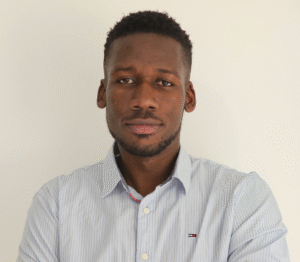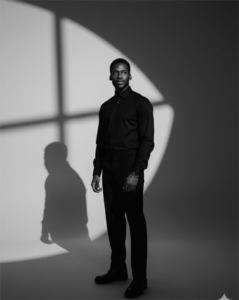In the world of entrepreneurship, there are stories of meteoric success and tales of heartbreaking failure. But the most compelling narratives often lie in the grey space between—the stories of bold visionaries who dared to challenge the status quo, only to find themselves battling forces beyond their control. This story highlights Dapo Abiola, a young Nigerian entrepreneur whose ambitious venture, Voltac Global Capital (VGC), became a powerful lesson in the unforgiving nature of high-stakes finance.
It’s a story not of malice, but of ambition meeting a perfect storm; a human-interest account of a leader who faced an impossible situation and communicated with his people until the very end.
In the quiet halls of university, where ambition first takes root, I stood out—not just for academic excellence, but for the weight of responsibility I willingly carried. Leading both in the classroom and across social and religious circles, it seemed the world had opened early to me. Friends often saw me as the one who could “make it work”—calm under pressure, relentless in pursuit. That quiet momentum, fueled by recognition and opportunity, made one thing feel inevitable: I needed to do more. Expand further. Take the leap. And so I did— co-launching my first firm, unaware that I was stepping into a journey that would stretch me in ways I could never have imagined.
When I co- founded Voltac Global Capital from my office in Lagos, in 2020, the goal was audacious and, in many ways, noble. In an economy where financial stability felt like a luxury for many, I envisioned a platform that could offer ordinary Nigerians a chance at real returns. VGC’s promised return on investment wasn’t just a number; it was a lifeline and the intentions emanated purely out of a symbol of hope in a challenging economic climate. But in our eagerness, we missed the signs—the subtle warnings we now wish we had heeded. Naivety met momentum, and we failed to pause, question, or prepare for what could go wrong. And eventually, it did.
For the first thirteen months, the vision was flawlessly executed. Investors, from students to small business owners, saw their capital grow, receiving their payouts promptly and consistently. I wasn’t a distant figurehead; I carried the business on my head and played the role of the accessible CEO, the face of the company who personally engaged with his community of investors through video messages, building a foundation of trust and transparency. I wasn’t just building a company; I was building a movement of financial empowerment.
Every entrepreneur knows that the market is a volatile sea. But in early 2021, a series of unforeseen and seismic events converged on VGC, creating a perfect storm that would test the limits of any business.
The first blow came from a sudden and sweeping government policy. The federal government’s unexpected ban on cryptocurrency trading sent shockwaves through Nigeria’s financial ecosystem. For a modern, digitally-savvy company like VGC, which had diversified its portfolio into various asset classes, the ban directly impacted a significant portion of its funds.1 It was an external shock, a regulatory earthquake that no one could have predicted.
This event triggered a second crisis: a wave of panic withdrawals. As news of the crypto ban spread, a natural anxiety rippled through the investor community, leading to a mass rush to pull out funds. This created a severe liquidity crunch, the kind of bank run that can cripple even the most stable financial institution.
As if these two challenges weren’t enough, a third and deeply damaging event occurred. VGC, like many asset management firms, had entrusted a significant share of its capital to a third-party trading partner, Quintessential Investment Company. In the midst of the market chaos, this partner allegedly failed to remit a staggering over 1.2 Billion Naira of Actual Capital back to VGC, a devastating blow to the company’s finances.
Faced with this triple-pronged crisis—a crippling government policy, a client-side panic, and a massive third-party default. I Dapo Abiola did not hide. I fronted the crisis directly. I appeared in videos, not with excuses, but with explanations, apologizing for the delays and assuring investors that we were doing everything possible to stabilize the ship. “VGC still stands, we are not going anywhere,” my words are a testament to my commitment to weathering the storm.
The company even took the step of involving the Nigerian Police Force Economic and Financial Crimes Commission (EFCC) to investigate the third-party default, a clear sign of my intent to recover the missing funds and make sure those who invested in VGC get back their share of investment. Joshua Kayode of Quintessential admitted to the capital being with him and VGC was made the first major count in the criminal case against Joshua who since then has been nowhere to be found.
Despite these tireless efforts, the combined weight of the challenges proved insurmountable. The company’s accounts were frozen due to legal actions from a small group of investors, which tragically prevented VGC from processing payments for everyone else. In the end, the dream that had started with such promise was forced to wind down.
My story and that of VGC is not a simple tale of failure. It is a profound case study in the immense risks of entrepreneurship in an emerging market. It highlights how external factors—from sudden regulatory shifts to the actions of third-party partners—can derail even the most promising ventures.
My journey is a testament to the courage it takes to build something new and the resilience required to face a crisis head-on. I remained the public face of the company—trusted both in the past and through its most difficult moments. While I could communicate openly with those who believed in my vision, I was deeply affected by the emotions tied to those who had lost faith and money. While the outcome was not what anyone hoped for, this story serves as a powerful reminder that in the arena of business, some battles are waged against forces far greater than any single entrepreneur. It is a lesson in humility, the harshness of circumstance, and the enduring spirit of a leader who dared to dream big.
But the story doesn’t end here.
My strength remains, even in the face of uncertainty. I am rebuilding—quietly, intentionally—healing and developing the discipline needed for what comes next. In time, I hope to create something new. A system that helps prevent promising young innovators from walking blindly into failure, and protects the public from devastating loss. Because failure should not be final—only formative.





